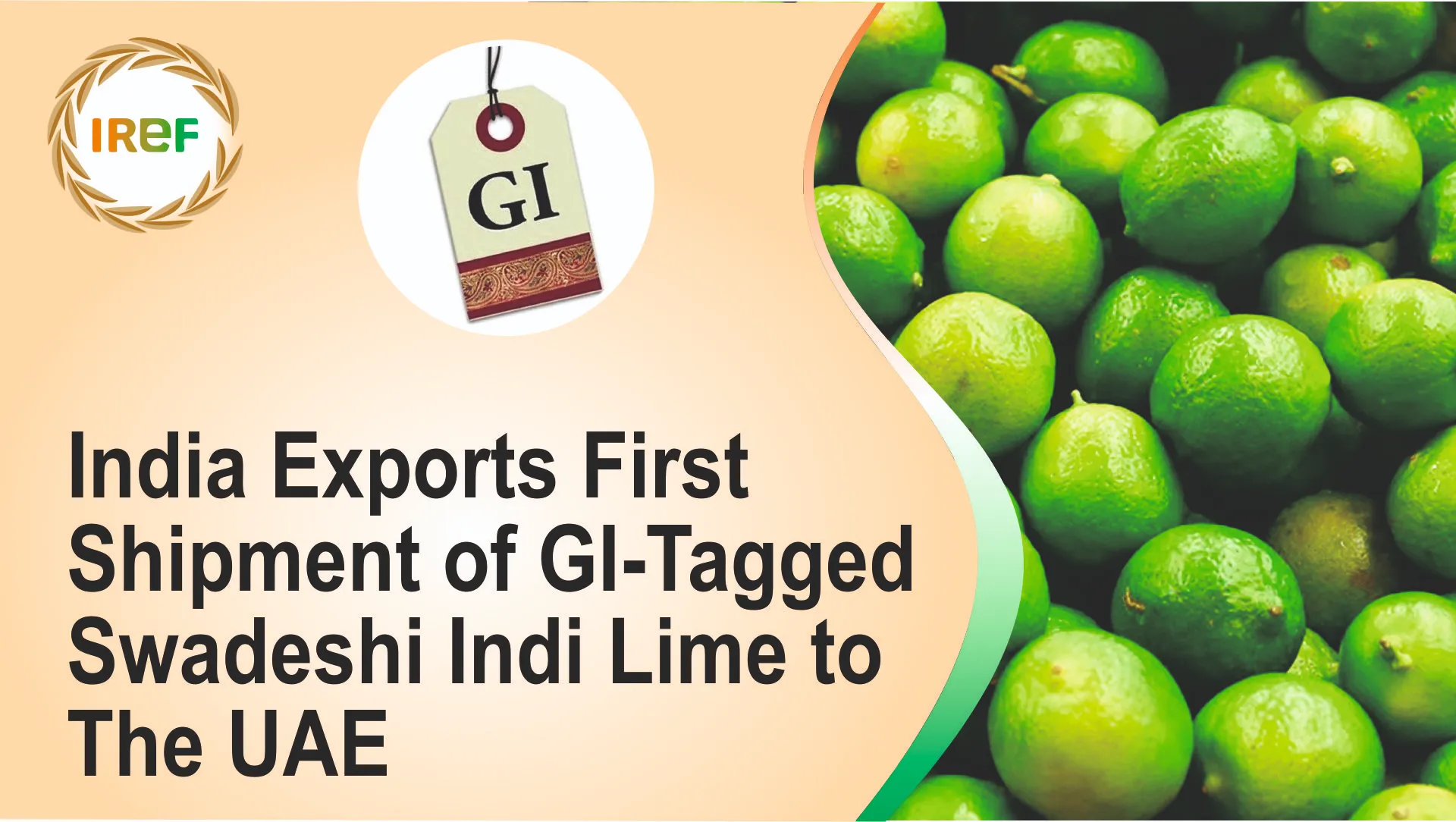India Exports First Shipment of GI-Tagged Swadeshi Indi Lime to the UAE

Union Minister of Commerce and Industry Piyush Goyal announced the first ever export of GI Tagged Swadesh Indi Lime to the UAE. Union Minister congratulated the Agricultural and Processed Food Products Export Development Authority (APEDA) for successfully exporting the first-every export of three metric tonnes (MT) of GI-tagged Swadeshi Indi Lime from Vijayapura, Karnataka, to the United Arab Emirates.
Sharing the update on social media, Piyush Goyal wrote, “India’s "India's GI-tagged products are making their mark globally. Kudos to APEDADOC (X formerly twitter handle of APEDA) for facilitating the first-ever export of 3 MT of GI-tagged Swadeshi Indi Lime from Vijayapura, Karnataka, to the UAE. This milestone unlocks fresh avenues for India's GI-tagged agri products in global markets & will create greater opportunities for our farmers & exporters."
About GI -Tag
A GI Tag or geographical indication tag is a certification given to products that originate from a specific region and have inherent qualities, reputation, and characteristics that contribute to their origin. If you are ever asked about what GI Tag is then you can simply answer it by defining it as a tag that creates a sense of identity attached to a place that helps in differentiating it with the help of the geographical indication tag.
GI tag in India not only represents a badge of authenticity but also serves as the purpose of protecting and promoting traditional knowledge, cultural heritage, and regional diversities. GI tag is registered and guarded under the Act of Registration and Protection of Geographical Indications of Products, 1999 in India. GI Tag in India is granted under the Geographical Indications of Goods (Registration and Protection) Act, 1999. Once it is granted it is valid for 10 years, however a period of 10 years it must be renewed. Failing to do so will result in the lapse of registration and the product may be misused or imitated.
Initiatives to Expand Access to International Markets
Notably, Export of GI-Tagged Swadesh Indi Lime to the UAE is followed by the first trial shipment of 1.2 metric tons of Garhwali Apples (King Roat variety) from Dehradun to Dubai earlier this month. The shipment of Garhwali Apples was also facilitated by APEDA and was flagged off by Commerce Secretary Sunil Barthwal. According to the Ministry of Commerce and Industry, these initiatives are intended to provide farmers with access to international markets and higher incomes. Apart from Limes and Apples, apricots from Kargil have also been exported to expand access to international markets. Apricot exports from Kargil have recently entered markets in Saudi Arabia, Kuwait, and Qatar. The exports totalled 1.5 metric tons and were carried out under the One District One Product (ODOP) initiative, a program that identifies, promotes, and brands unique agricultural products from different districts across India. The Department for Promotion of Industry and Internal Trade (DPIIT) leads the ODOP scheme to promote balanced regional development. By targeting products such as Indi Lime, Garhwali Apples, and Kargil Apricots, the initiative seeks to link local producers with global buyers.